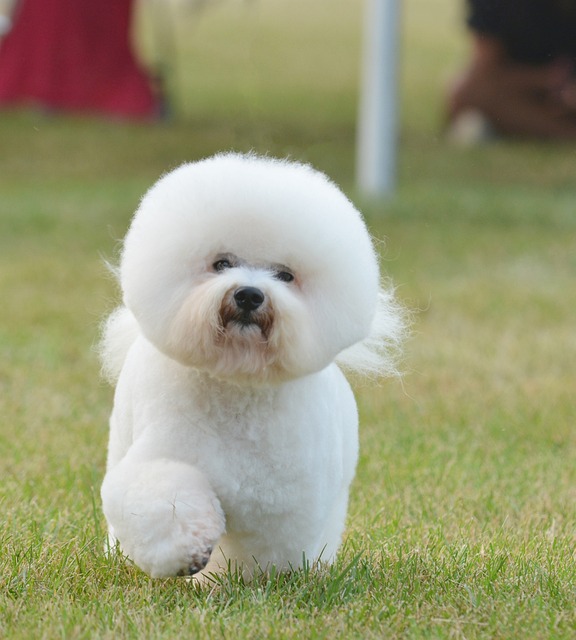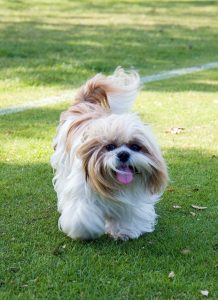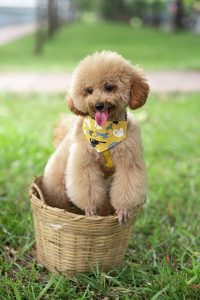Bichon Frise: The Perfect Hypoallergenic Dog Breed
The hypoallergenic nature of the Bichon Frise

The Bichon Frise hypoallergenic nature is one of the main reasons why they are such a popular choice for allergy sufferers. As mentioned earlier, they have hair instead of fur, which means they shed less and produce fewer allergens. This is great news for those who are allergic to dog dander, as it reduces the risk of allergic reactions and makes it easier to live comfortably with a Bichon Frise. However, it’s important to note that no dog breed is completely hypoallergenic. While Bichon Frises produce fewer allergens, they still produce saliva and urine that can also contain allergens. Therefore, people with severe allergies may still react to the bichon frise, especially if they come in direct contact with its mouth or skin. It’s always recommended to spend time with a Bichon Frise before bringing one into your home to see if you have any allergic reactions. Additionally, keeping your home clean and free from allergens is essential for allergy sufferers. Regular vacuuming, dusting, and washing of bedding can help minimize the presence of allergens in your home and create a healthier environment for both you and your furry friend.
The Bichon Frise hypoallergenic history
The hypoallergenic qualities of the Bichon Frise may be influenced by its historical background. Descended from the water spaniel and the poodle, both of which have coats that shed minimally, this breed originated in the Mediterranean region. Sailors and traders favored the bichon frise, bringing it to various ports and islands. The breed’s history likely influenced its coat type, texture, adaptability, and temperament. It is possible that the bichon frise developed a soft curly coat suitable for diverse climates and environments, as well as a friendly and sociable personality towards different individuals and animals. These Bichon Frise hypoallergenic and personality characteristics likely contributed to its appeal among individuals with allergies, as they could enjoy the company of a dog that was easy to care for, enjoyable to be around, and less likely to provoke allergic reactions.
Common allergies and how Bichon Frise can help
Allergies can vary from person to person, but some of the most common allergies include pet dander, pollen, dust mites, and mold spores. Pet dander, in particular, can be a major trigger for pet allergies, especially for those who are sensitive to it. Pet dander consists of tiny flecks of skin that are shed by animals, including dogs. These tiny particles can become airborne and cause allergic reactions when inhaled. However, Bichon Frises produce less dander compared to other dog breeds, thanks to their hair instead of fur. This means that individuals who are allergic to pet dander may have fewer allergic reactions when living with a Bichon Frise. The minimal shedding and lower amount of allergens in the air and on furniture make Bichon Frises a great choice for allergy sufferers who still want to experience the joy of owning a dog.
Tips for living with a Bichon Frise if you have allergies
Living with a Bichon Frise can be a wonderful experience, even if you have allergies. Here are some tips to help you live comfortably with your hypoallergenic furry friend:
- Keep the house clean: Regular cleaning is essential to minimize the presence of allergens in your home. Vacuuming, dusting, and washing bedding regularly can help reduce the amount of pet dander and other allergens in the air.
- Create pet-free zones: Designate certain areas of your home as pet-free zones, such as bedrooms or living rooms. This will provide you with a space where you can retreat to if you need a break from allergens.
- Wash your hands: Washing your hands after petting or handling your Bichon Frise can help remove any allergens that may be on your skin.
- Consider allergy medication: If you have severe allergies, you may want to consult with your doctor about allergy medication that can help alleviate symptoms.
- Regular grooming: Keeping your Bichon Frise well-groomed and clean can help minimize the amount of dander they produce. Regular brushing and bathing are key, and preferably groom outdoors if possible.
- Avoid face licking or allowing your Bichon Frise to lick areas of your skin that are particularly sensitive and wash affected area as soon as possible
- Consult a doctor: If you’re unsure whether a Bichon Frise is the right dog for you, consider consulting a doctor who can help determine if you are allergic to pet dander and provide advice on managing your allergies.
Grooming and maintenance of Bichon Frise
The Bichon Frise may be hypoallergenic, but that doesn’t mean they don’t require regular grooming and maintenance. Their hair grows continuously and can become easily tangled if not properly cared for. Regular brushing is essential to prevent matting and keep their coat looking its best. It’s recommended to brush your Bichon Frise at least once or twice a week, depending on the length of their hair. This will help remove any loose hair and minimize the amount of dander in your home. Additionally, regular baths are necessary to keep their coat clean and free from allergens. Be sure to use a gentle, hypoallergenic shampoo that won’t irritate their skin. Trimming their hair around the eyes and ears is also important to prevent eye infections and ear issues. Overall, proper grooming and maintenance are crucial to keeping your Bichon Frise hypoallergenic, happy and healthy.
Finding a Bichon Frise puppy or rescue dog
If you’ve decided due to the Bichon Frise hypoallergenic nature, this is the perfect dog breed for you, the next step is finding a Bichon Frise puppy or rescue dog. There are several options available to you:
- Reputable breeders: Look for reputable breeders who specialize in Bichon Frises. They will have a deep understanding of the breed, breed for health and temperament, and provide proper socialization for their puppies.
- Rescue organizations: Consider adopting a Bichon Frise from a rescue organization. There are many Bichon Frises in need of loving homes, and adopting one can be a rewarding experience.
- Local shelters: Check your local animal shelters or humane societies. They may have Bichon Frises or Bichon Frise mixes available for adoption.
When choosing a Bichon Frise puppy or rescue dog, make sure to ask questions about their health history, temperament, and any training they have received. It’s important to find a dog that is a good fit for your lifestyle and family.
Other hypoallergenic dog breeds
If the Bichon Frise is not the right breed for you, there are a number of other low shedding dog breeds that might be suitable for people with allergies. Some examples include the Poodle, Maltese, Yorkshire Terrier, Shih Tzu, Portuguese Water Dog, Schnauzer, and Soft Coated Wheaten Terrier.
- Poodles come in different sizes, such as standard, miniature, and toy. They have a curly or wavy coat that sheds minimally, making them a popular choice for allergy sufferers.
- Maltese dogs have long, silky hair that grows continuously but doesn’t shed much. They are considered hypoallergenic because they produce less dander.
- Known for their beautiful, long, and hypoallergenic coat, Yorkshire Terriers are a popular choice for people with allergies.
- Shih Tzus have a long, luxurious coat that is hypoallergenic and sheds minimally.
- Portuguese Water Dog has a curly, non-shedding coat that is often considered hypoallergenic.
- Miniature Schnauzers and Giant Schnauzers are known for their hypoallergenic coats. They have a wiry, dense coat that doesn’t shed much, making them suitable for individuals with allergies.
- Soft Coated Wheaten Terriers have a soft, wavy coat that requires regular grooming to prevent matting. They are typically considered hypoallergenic because they shed less and produce less dander.

Shih Tzu – a Bichon Frise hypoallergenic alternative

Schnauzer – a Bichon Frise hypoallergenic alternative

Poodle – a Bichon Frise hypoallergenic alternative
Conclusion: Is a Bichon Frise the right hypoallergenic dog for you?
The Bichon Frise is a great hypoallergenic dog breed for those who suffer from allergies or sensitivities to pet dander. Their hair instead of fur, minimal shedding, and lower amount of allergens make them a great choice for allergy sufferers. However, it’s important to remember that no dog breed is completely hypoallergenic, and individual allergies can vary. Spending time with a Bichon Frise before bringing one into your home is recommended to see if you have any allergic reactions. With proper grooming, maintenance, and a clean living environment, living with a Bichon Frise can be a rewarding and enjoyable experience. So, if you’re in search of a hypoallergenic dog breed that will bring joy, love, and companionship into your home, the Bichon Frise is the perfect choice.